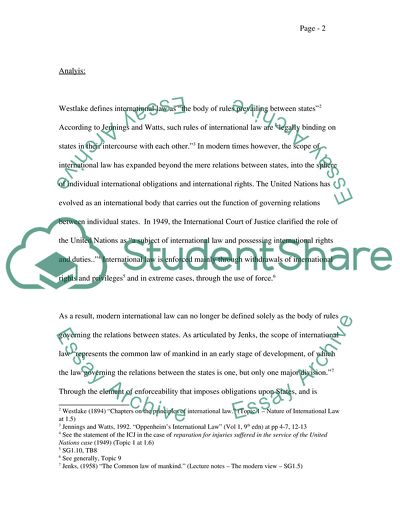Cite this document
(Analysis of International Law Essay Example | Topics and Well Written Essays - 2250 words, n.d.)
Analysis of International Law Essay Example | Topics and Well Written Essays - 2250 words. Retrieved from https://studentshare.org/law/1706399-international-law-essay
Analysis of International Law Essay Example | Topics and Well Written Essays - 2250 words. Retrieved from https://studentshare.org/law/1706399-international-law-essay
(Analysis of International Law Essay Example | Topics and Well Written Essays - 2250 Words)
Analysis of International Law Essay Example | Topics and Well Written Essays - 2250 Words. https://studentshare.org/law/1706399-international-law-essay.
Analysis of International Law Essay Example | Topics and Well Written Essays - 2250 Words. https://studentshare.org/law/1706399-international-law-essay.
“Analysis of International Law Essay Example | Topics and Well Written Essays - 2250 Words”, n.d. https://studentshare.org/law/1706399-international-law-essay.


